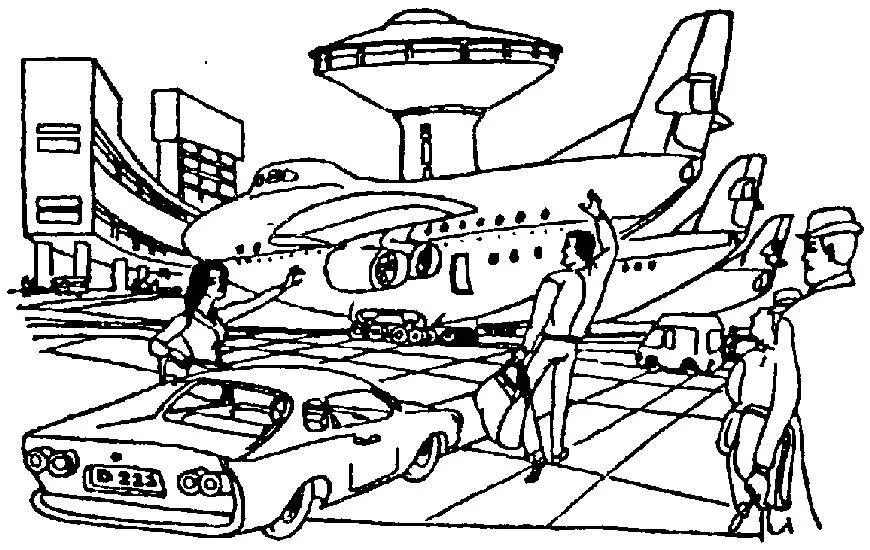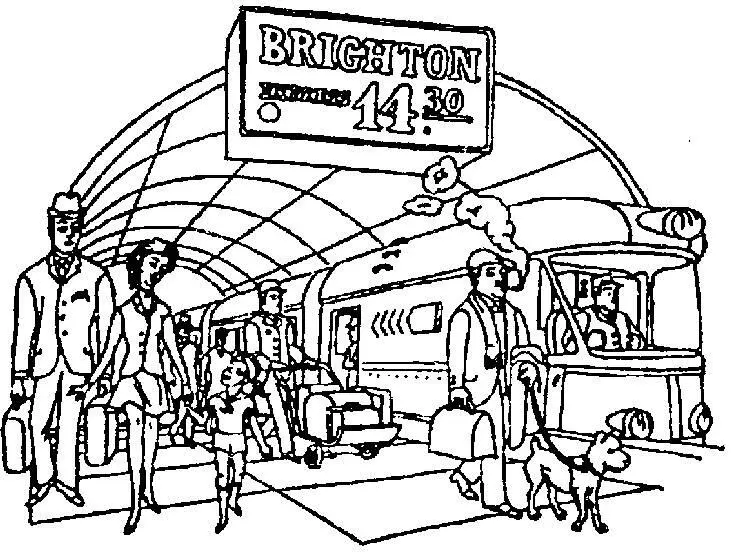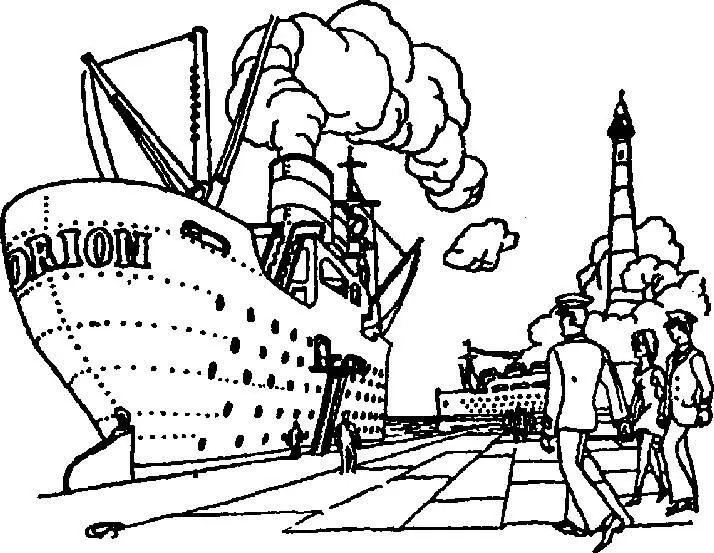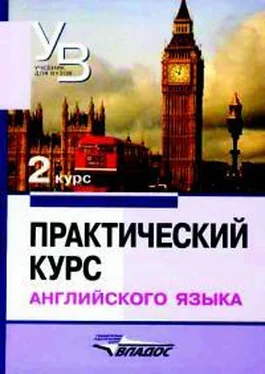someone agree or disagree and express their own opinion (see the Prompts
suggested):
1. What kind of man is described in the character of Le Ros? Do you consider the character
true to life or is it exaggerated? Which method of characterization does the author use, direct or
indirect? (Prove your point.) 2. Is the story just an amusing anecdote or does it contain elements of
social satire? (Prove your point) 3. Which lines and passages bear touches of humour? What type of
humour prevails in the story? Compare the story with "How We Kept Mother's Day." Which of the
two do you consider more amusing and why? Which is more true to life? Which raises more
important problems? 4. What can you say about the language of the story? (Touch on: a) selection of
words, b) syntax.)
Prompts: true enough; absolutely/exactly/quite; I couldn't agree more; yes, but surely you
don't think; yes, but on the other hand; as I see it, in my view (opinion); personally I believe (I feel);
I'd just like to say, the way I see it; if you ask me: it's like this; oh, surely not, Vd rather not say
anything about.
LABORATORY EXERCISES (I)
1. Listen to the text "Seeing People Оff", mark the stresses and tunes. Repeat it
following the model.
2. Respond to the given questions according to the model.
3. Extend the statements. Express your disbelief, surprise or doubt in response to the
given sentences. Follow the models.
4. Write a spelling-translation test: a) translate the phrases into English; b) check them
with the key.
5. Listen to the text "Climbing" or some other text on the topic "Seeing People off" and
write it as a reproduction.
6. Listen to the poem "Adieu, adieul.." by G. G. Byron. Mark the stresses and tunes,
repeat it following the model and learn it by heart.
TOPIC: TRAVELLING
TEXT A. DIFFERENT MEANS OF TRAVEL .



A l e x : Personally 1 hate seeing people off. I prefer being seen off myself. I'm extremely
fond of travelling and feel terribly envious of any friend who is going anywhere. I can't help feeling I
should so much like to be in his place.
B e r t : But what method of travelling do you prefer?
A.: For me there is nothing like travel by air; it is more comfortable, more convenient and of
course far quicker than any other method. There is none of the dust and dirt of a railway or car
journey, none of the trouble of changing from train to steamer and then to another train. Besides,
flying is a thrilling thing. Don't you agree?
В.: I think I should like to say a word or two for trains. With a train you have speed, comfort
and pleasure combined. From the comfortable corner seat of a railway carriage you have a splendid
view of the whole countryside. If you are hungry, you can have a meal in the dining-car; and if the
journey is a long one you can have a wonderful bed in a sleeper. Besides, do you know any place
that's more interesting than a big railway-station? There is the movement, the excitement, the gaiety
of people going away or waiting to meet friends. There are the shouts of the porters as they pull
luggage along the platforms to the waiting trains, the crowd at the booking-office getting tickets, the
hungry and thirsty ones hurrying to the refreshment rooms before the train starts. No, really! Do you
know a more exciting place than a big railway-station?
С е с i l : I do.
A.: And that is?
C: A big sea port, For me there is no travel so fine as by boat. I love to feel the deck of the
boat under my feet, to see the rise and fall of the waves, to feel the fresh sea wind blowing in my
face and hear the cry of the sea-gulls. And what excitement, too, there is in coming into the harbour
and seeing round us all the ships, steamers, cargo-ships, sailing ships, rowing boats.
A.: Well, I suppose that's all right for those that like it, but not for me. I'm always seasick,
especially when the sea is a little bit rough.
В.: I've heard that a good cure for seasickness is a small piece of dry bread.
A.: Maybe; but I think a better cure is a large piece of dry land.
D a v i d : Well, you may say what you like about aeroplane flights, sea voyages, railway
journeys or tours by car, but give me a walking tour any time. What does the motorist see of the
country? But the walker leaves the dull broad highway and goes along little winding lanes where
cars can't go. He takes mountain paths through the heather, he wanders by the side of quiet lakes and
through the shade of woods. He sees the real country, the wild flowers, the young birds in their nests,
the deer in the forest; he feels the quietness and calm of nature.
And besides, you are saving your railway fare travelling on foot No one can deny that
walking is the cheapest method of travelling,
So I say: a walking tour for me.
(From "Essential English for Foreign Students" by С. E. Eckersley, Book 4, Lnd., 1955)
TEXT В. АТ ТНЕ STATION
F.: Well, here we are at last! When I get into the boat-train,71 I feel that holidays have already
begun. Have you got the tickets, Jan?
J.: Yes, here they are. I booked seats for you and me; trains are usually crowded at this time.
We have numbers A 26 and A 30; two corner-seats in a non-smoker, one seat facing the engine, one
71 boat-train:the train that takes passengers to a ship
back to the engine. Is that all right?
F.: That's very good, Jan. I don't like going a long journey in a smoker. May I sit facing the
engine?
J.: Of course! You can take whichever seat you like. As a matter of fact, I really prefer sitting
with my back to the engine. Here's our carriage, A, and here's our compartment. You can get into the
train now.
F.: Lucy, won't you come into the carriage with me? You will be wanner inside.
L: Thanks, I will.
J.: I'll go and see that our luggage has been put into the guard's van, and I'll book two seats in
the restaurant car for lunch. I'll get some newspapers at the bookstall and some chocholate on my
way back. (He goes away.)
L.: Jan is a good fellow for getting things done, isn't he?
F.: He is. I don't know anyone better. I'm very glad he is coming with me. I know that I shall
have a very comfortable journey. Jan will see to everything — find the seats on the train, see that my
luggage is all right, and get it through the customs. I shan't have to do anything at all except sit back
and enjoy the journey.
(from "Essential English for Foreign Students" by С. Е. Eckersley, Book 2. Lnd., 1977)
TEXT С. A VOYAGE ROUND EUROPE
L.: Hello, Anne. Are you back from your holidays already? Ooo, you're lovely and brown!
Where have you been?
Читать дальше








![Владимир Аракин - Практический курс английского языка 3 курс [calibre 2.43.0]](/books/402486/vladimir-arakin-prakticheskij-kurs-anglijskogo-yazyk-thumb.webp)






